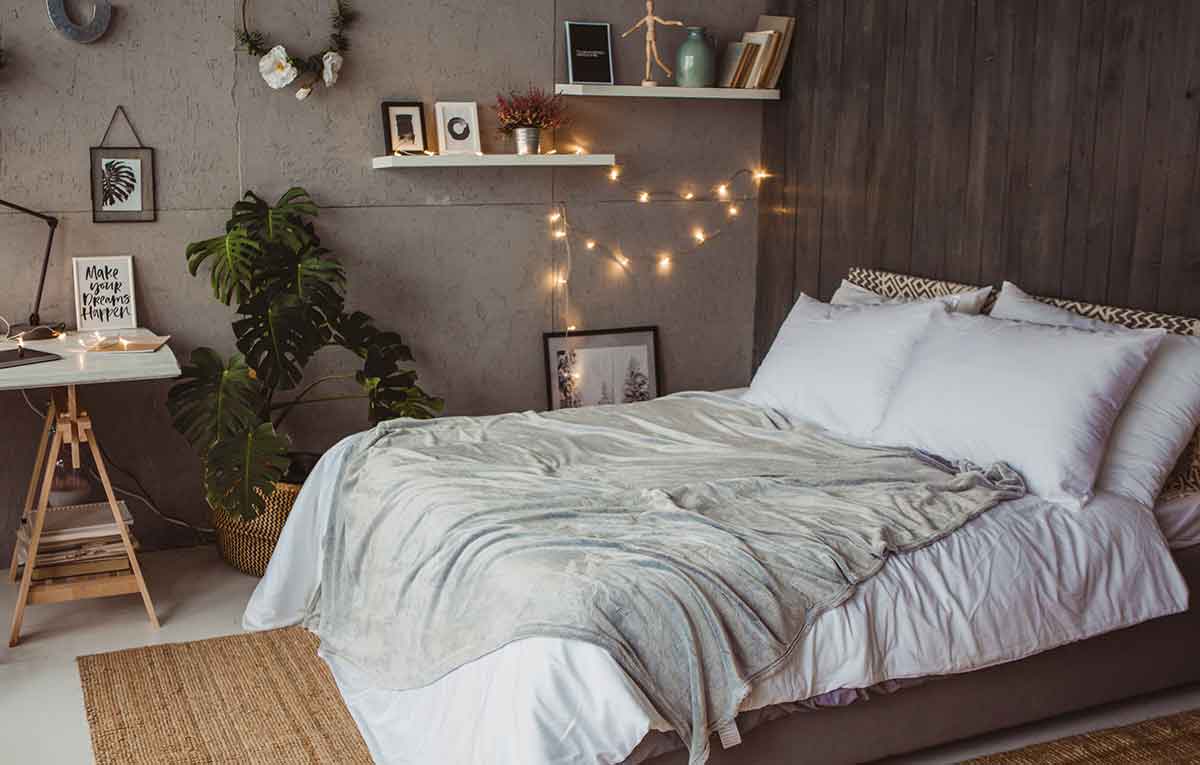Top 10 Strategies for Better Sleep
According to the American Academy of Sleep Medicine (AASM), insomnia impacts approximately one-third of adults. Insomnia sufferers usually experience impacts to their daily functioning including but not limited to decreases in productivity, decreased quality of life, and depressed mood if the problem is chronic. Fortunately, there are several strategies that can be effective in increasing the length and quality of our sleep each night without the use of medications.
1. Scheduled sleep/wake times
By keeping a regular schedule of waking up and going to bed, your body becomes accustom to going to bed at the same time each night. This can be enhanced by creating a routine in which you complete the same or similar tasks before bed every night (e.g. take a bath, brush your teeth, lay out clothes for the next morning, etc.).
2. Have a simple routine
Having a simple routine may be helpful in signaling your body that it is time for bed and this routine should provide some form of relaxation. For example, you may practice deep breathing and think about positive events from the day after you get into bed. This may help you reduce anxiety and decrease thoughts about tasks that need to be completed the next morning. Try this strategy when you are away from home (e.g. on a business trip) or if you cannot go to sleep at the same time each night.
3. Your bed is for sleeping
Watching television, using a phone or laptop, eating, and reading (other than for enjoyment) are a few of the activities that can create a pattern of wakefulness in bed. These activities can have a negative impact on your ability to fall asleep because you’ve created associations for activities besides sleep and sexual activity with your bed. Allow your bed to be a sanctuary for rest and if you need to send an email at night do so outside of your bed.
Also, if you find yourself lying in bed for more than 20-30 minutes and do not feel close to falling asleep get out of bed. Go to a different room and complete tasks that are relaxing and non-activating (e.g. have a cup of decaffeinated tea, read a pleasant book) until you begin to feel tired again. Avoid engaging in activities that may increase your feelings of wakefulness (e.g. watching television, paying bills, playing games online). In general, avoid bright screens (e.g. television, phone, and computer) as they mimic daylight and may cause you to feel more awake.
4. Avoid naps
Remnants of our daytime activities become evident when we try to go to sleep. Avoid sleeping during the day. Taking naps, especially close to your regular bedtime, can negatively impact your ability to fall asleep when needed.
5. Avoid caffeine
Create healthy daytime habits. Avoid the consumption of caffeine (soda, coffee, tea, energy drinks, chocolate, etc.) several hours before bed. A good rule is to not consume any caffeine four hours or less before the time you want to fall asleep.
6. Limit alcohol
Limit your consumption of alcohol. Alcohol acts as a depressant initially after drinking and may cause you to feel sleepy. However, once processed by the body it becomes a stimulant and actually increases the likelihood of waking in the middle of the night or having restless sleep.
7. Do not go to bed hungry
Make an effort to have a small satisfying snack before bed, because going to bed hungry or eating a big meal immediately before going to bed can negatively impact your sleep.
8. Make time to exercise
Create an exercise routine. Go for a walk, run, bike ride, or to the gym. Physical activity can give you a boost of energy during the day and help you feel tired at bedtime.
9. Make your bedroom pleasant
Make sure your curtains and blinds let in the amount of light you prefer at night and in the morning. For example, clean up any piles of trash, books, clothes, and other clutter that may be piled on or around your bed. You may also need to check to see if it’s time to buy new pillows or a new mattress as this may lead to disruptive sleep/wake patterns.
10. Create a relaxing environment
Introduce relaxing smells (e.g. lavender) or sounds (e.g. waves) to your bedroom. These should not be so overpowering that they actually disrupt sleep but can be used in moderation to create a relaxing environment.
If you have persistent difficulty sleeping, it is important to consult with a physician to decide if medication is needed or to assess for sleep disruptive disorders, such as sleep apnea.


